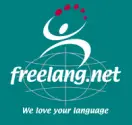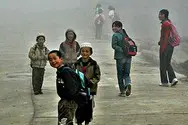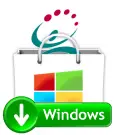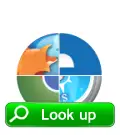| Freelang dictionary |
| Other Freelang resources |
| Sponsored Links |
Freelang Dongxiang-English dictionary
| Related dictionaries |
| We also offer a Mongolian dictionary, by the same author. |
| Live from the Blog |
|
Dongxiang – The Santa language The Dongxiangs are an agricultural people. They mainly grow wheat, maize, potatoes, beans and other crops. They have a rich cultural heritage which is mostly seen through its folk songs and narrative poems. Folk songs, which are also known as ‘flowers’ were mainly sung in the past to proclaim hope and to fight against any kind of oppression on the community. Poems and folktales were mainly used to highlight the heroic activities of individuals in the community who [...] |
![]()
Dongxiang is a Mongolian language spoken in northwestern China by about 250,000 people. The Dongxiang, one of the 56 ethnic groups officially recognized in China, are closely related to the Mongolians, but they are predominantly muslims.
Features of this dictionary
Download our free dictionary (for Windows or Android) and browse both the Dongxiang-English and the English-Dongxiang lists. Look up a word, add or modify an entry, and learn words at your own rhythm from a personal learning list. Click here to learn more about the features or scroll down to download the program. An online version is also available, so you can browse the dictionary without downloading it.
Features of this dictionary
Download our free dictionary for Android! Browse the wordlists, look up words and practice your vocabulary at your own rhythm. An online version is also available, so you can browse the dictionary without downloading it.
Word list information
This dictionary was made by Renato B. Figueiredo.
List status: © Renato B. Figueiredo
Dongxiang > English: 606 words
English > Dongxiang: 481 words
Last update: March 21, 2014
First upload: February 19, 2008
Download
1. Read and accept the terms of our copyright notice
2. Click here to download the program (2.21 mb)
3. Click here to download the Dongxiang word list (309.08 kb)
4. Double click on each file and install in suggested folder.
Other Freelang resources
We have more than dictionaries and translation! Check out our collection of common expressions translated in all languages, test your knowledge with our quizzes about languages, or learn more about language families. To stay in touch with us, read our blog about languages and follow us on Facebook.






